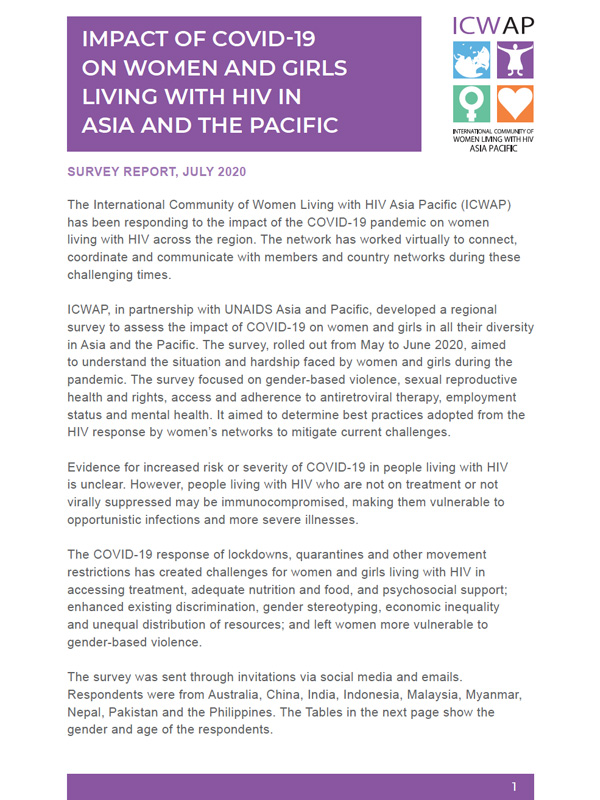Impact of Covid-19 on Women and Girls Living with HIV in Asia and The Pacific
The International Community of Women Living with HIV Asia Pacific (ICWAP) has been responding to the impact of the COVID-19 pandemic on women living with HIV across the region. The network has worked virtually to connect, coordinate and communicate with members and country networks during these challenging times.
ICWAP, in partnership with UNAIDS Asia and Pacific, developed a regional survey to assess the impact of COVID-19 on women and girls in all their diversity in Asia and the Pacific. The survey, rolled out from May to June 2020, aimed to understand the situation and hardship faced by women and girls during the pandemic. The survey focused on gender-based violence, sexual reproductive health and rights, access and adherence to antiretroviral therapy, employment status and mental health. It aimed to determine best practices adopted from the HIV response by women’s networks to mitigate current challenges.
Evidence for increased risk or severity of COVID-19 in people living with HIV is unclear. However, people living with HIV who are not on treatment or not virally suppressed may be immunocompromised, making them vulnerable to opportunistic infections and more severe illnesses.
The COVID-19 response of lockdowns, quarantines and other movement restrictions has created challenges for women and girls living with HIV in accessing treatment, adequate nutrition and food, and psychosocial support; enhanced existing discrimination, gender stereotyping, economic inequality and unequal distribution of resources; and left women more vulnerable to gender-based violence.
The survey was sent through invitations via social media and emails. Respondents were from Australia, China, India, Indonesia, Malaysia, Myanmar, Nepal, Pakistan and the Philippines.
